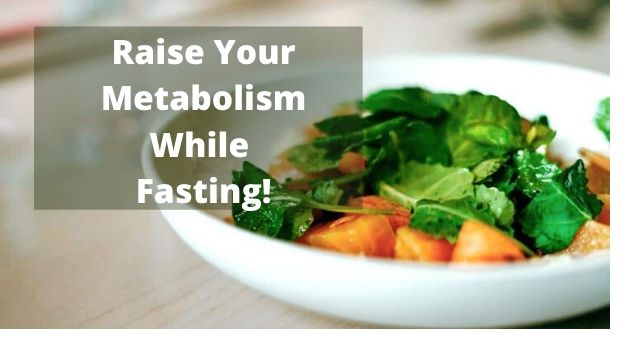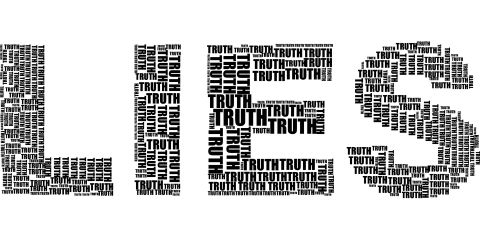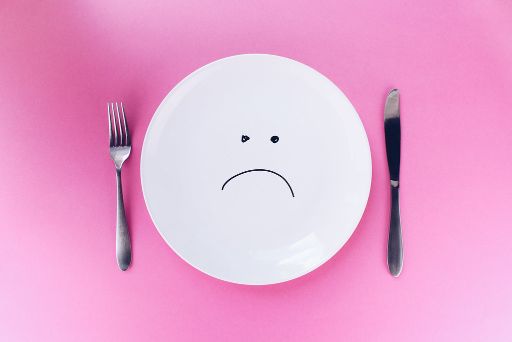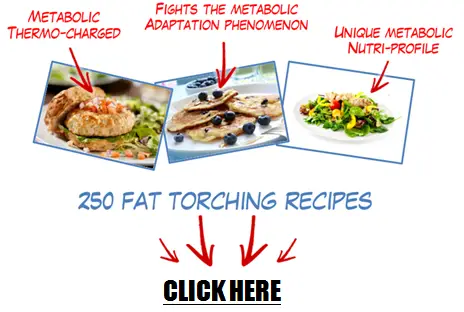If you know anything about weight loss, you know you want a high metabolism.
The higher your metabolism, the quicker your burn calories during the day.
It even helps you burn calories when you’re not exercising!
Intermittent fasting is a modern way to help with weight loss and fat burning.
The problem is, your metabolism begins to slow when you fast for too long.
It’s important to keep your metabolism high when fasting!
First, I’ll go over the basics of metabolism and fasting!
Then, I’m going to review the best ways to keep your metabolism high when you’re fasting.
Let’s get to it!
Truth About Metabolism During Fasting
Metabolism is the process of burning calories to fuel your body.
When your metabolism is high, you burn calories much more efficiently.
When your metabolism is low, you’re more likely to put on some extra weight.
When you fast, you’re trying to manipulate your metabolism.
But, it’s a little confusing to understand how it works when you’re fasting.
So, I’m going to first go over how your metabolism might change when you’re fasting.
Your Fasting Metabolism
When you’re fasting, you’re going between 16 and 24 hours without eating.
With fasts that last up to 48 hours, you can actually boost your metabolism by around 14%.
This is essential if you’re looking to lose weight and burn that stubborn body fat.
That’s because fat is your body’s first fuel source if you’re not taking in any calories.
Short-term fasts also have plenty of unique benefits.
They can help to lower your blood sugar levels, cholesterol, and blood pressure.
There’s even proof it might help cancer patients work through chemotherapy.
Fasting can even help you to look younger and reduce inflammation within your body.
Well, only as long as you’re fasting the right way.
Otherwise, you might just be destroying your body or wasting your time!
Myths of Fasting
Short-term fasts don’t have many risks unless you have certain pre-existing conditions.
That’s why it’s important that I go over the myths that come with fasting.
First off, fasts won’t put you into starvation mode if you’re sticking to 16 or 24-hour fasts.
These short fasts also won’t force your muscles to breakdown as a source of fuel.
This so-called starvation mode usually occurs when you go several days in a row without eating, not 24 hours or less.
At that point, your metabolism will slow down and you might burn muscle mass.
Other than that, your body will only really be burning fat as a fuel source.
So, you don’t have to worry about losing your gym gains every time you fast!
Some people also think that your metabolism actually slows down during a fast.
While this might be true, it only really happens when your fast lasts too long.
It’s usually after several days straight without eating.
Intermittent fasting is great for preventing all of these negative consequences.
And, it has benefits too.
Recommendations
Fasting sounds simple enough, right?
But, you want to make sure that you’re doing it right.
There are plenty of other unique ways to boost your metabolism.
And, they’re quite easy to do.
Let’s go over some tips for enhancing your fasting experience.
Metabolic Foods
Instead of doing regular fasts, why not boost your metabolism through food?
Some foods are known to detox the body and also improve your metabolism.
Even better?
You don’t have to starve yourself or sit through the hunger of your fasting period.
Did you know that protein can actually improve your metabolism?
That’s because it takes a lot more energy within your body to digest protein.
When your body uses more energy, you’re also burning more calories!
The more protein you eat, the more calories you’re burning the day.
Plus, protein has fewer calories per gram than fat, so you’re eating fewer calories too!
What’s even more unique is that there are certain foods that can boost your metabolism.
So, here’s a list of these foods.
- Coffee: The caffeine in coffee and green tea can help trigger a faster metabolism.
- Meat, Eggs, and Fish: These are high in protein, which I just went over.
- Chili Peppers: When you eat spicy foods, you can help to raise your metabolism for a little while.
- Avocado: These actually have anti-inflammatory effects and can reduce your hunger, so you’ll eat less.
- Whole grains: These are great for helping you to feel fuller for longer and helping with metabolism boosts.
Overall, you just want to focus on foods that have a lot of protein.
So, beans, nuts, and seeds are also great options.
Almonds are great for burning calories, allowing you to feel full, and reducing your appetite.
No matter what you’re eating, keep your metabolism in mind.
Do Intermittent Fasting for Only Short Periods
The trouble with fasting is that there’s a point at which it’s not beneficial.
After all, why fast longer than you need to if the effects won’t be much better?
Stick to fasting for 16 or 24 hours at a time.
Also, avoid doing 24-hour fasts too often.
Once or twice a week should be more than enough.
This is great for keeping those annoying hunger pangs away and staying fueled as often as possible.
When you fast for too long, there are some risks.
You might get dizzy, extremely hungry, or even faint.
It’s best to read your body’s reactions to fasting and determine your fasting period from there.
Resistance Training
Yes, resistance training will probably put a few extra pounds onto your frame.
But, it’s just muscle mass and will make your physique even better.
Resistance training can also raise your metabolism and help with weight loss.
You’ll definitely be burning calories during your workout, but also after your workout.
What’s even better is when you put on some muscle mass.
The more muscle you have, the more efficiently your body burns calories.
You’ll burn calories without even doing anything!
Plus, you’ll feel a lot better about your appearance when you see more muscle than fat.
So, it would be a great idea to get some strength training into your schedule.
Sleep More
Did you know that not getting enough sleep can make you fat?
In fact, sleeping more can help you to burn more fat as you sleep!
Not getting enough sleep also puts you at risk of losing more muscle mass!
A lot of it comes down to the hunger hormones: Leptin and ghrelin.
When you’re not getting as much sleep as you need, your ghrelin levels increase.
With higher ghrelin levels, your appetite also increases.
So, the less you sleep, the hungrier you’ll be and the more you’ll probably eat.
How much sleep do you need?
Aim for between 7 and 9 hours of sleep a night.
Keep in mind the fact that you’re looking for quality sleep, not just any old sleep.
Drink Water
You should be drinking water anyway.
Water helps your body perform tasks and helps to keep you hydrated during the day.
It also has zero calories, meaning it’s a great alternative to juices, sodas, and other high-calorie drinks.
Drinking water also helps to boost your metabolism.
In fact, your metabolism can raise up to 30% an hour when you’re drinking enough water.
But, cold water might even be better.
Since it’s cold, your body has to put in a little extra work to warm up your body after drinking it.
This takes a lot out of your body.
It also burns calories.
So, if you want to burn some extra calories and raise your metabolism, drink cold water!
And try getting more than 64 ounces a day.
More is better.
High-Intensity Interval Training
This is sometimes referred to as HIIT.
Basically, you work out intensely for a little while, take rests, and then repeat.
This sometimes can burn more than 10 to 20 calories a minute.
Plus, it can send your metabolism soaring, even after you’re done exercising.
What’s great about HIIT is that you can get it done in a short period of time.
For example, Tabata training only lasts four minutes.
You do an exercise or activity intensely for 20 seconds.
The exercise can be running, swimming, jumping, etc.
After that, take a 10-second break.
Repeat this same cycle 8 times.
So, you’ll burn a ton of calories during and after your exercise!
Don’t Starve Yourself
As much as you want to decrease your calories when intermittent fasting, don’t starve yourself.
When you’re not getting enough calories, your body doesn’t work as efficiently.
So, you might actually be slowing your metabolism down if you’re not eating enough.
If you’re looking to lose weight through intermittent fasting, only decrease your calories a little bit.
A few hundred calories less a day should be enough.
Add that to daily exercise and you might lose a pound or two a week.
Remember, quicker isn’t always better when it comes to weight loss.
You need to give your body time to adjust to your new weight and eating plan.
The Keys That Make Intermittent Fasting Work
For intermittent fasting to work, you need to make sure that you’re doing it right.
If your fasts are too long, your body might enter starvation mode.
If your fasts are too short, you won’t be getting the same effects.
If you’re eating too many calories, intermittent fasting is just a waste of time.
So, I’ll go over how you can make intermittent fasting work best for you.
16:8
The 16:8 intermittent fasting schedule is the best one.
You need to figure out what times of day your eating and fasting windows will be.
You might want to open up 10 AM to 6 PM for eating.
Between 6 PM and 10 AM, you’ll be fasting.
The rest of the time, you’ll be fasting.
What’s great about this schedule is that it builds in your sleep schedule into the fasting window.
However, the hours you choose will be up to you.
Just make sure that you’re not eating too close to bedtime.
If you’re up for it, you might want to try the 24-hour fast instead.
With a 5:2 schedule, you can eat five days a week and fast for two.
Just make sure the two non-eating days aren’t back to back.
Calories Consumed
When your eating window finally opens up, you’re going to be hungry!
However, it doesn’t make much sense to eat as much as you possibly can.
If you’re eating to make up for what you didn’t eat when you were fasting, it’s pointless.
You should be working to eat the same number of calories as you would during a normal day.
Hopefully, that’s the number of calories you’re supposed to be eating.
You want to also focus on eating a balanced diet.
Here’s a look at the types of foods you’ll want to focus on eating.
- Whole grains, fruits, and vegetables
- Low-fat protein and dairy sources
- Natural and raw foods (not processed)
- Nutrient-dense foods
When you’re refueling your body, the last thing you want to do is refuel with unhealthy foods.
You want food that’ll actually give you energy and make you feel good.
Plus, eating more calories than you would in a day won’t exactly lead to weight loss.
Focus on a healthy diet as much as possible.
This is the best way to see beneficial results
Keep Hydrated
You can’t eat when you’re fasting, but you should still be drinking.
Now, I don’t mean juices, sodas, or anything with calories.
I’m talking about water, tea, and coffee.
If you’re not drinking and you’re not eating, you’re going to be feeling the effects.
You’ll be tired, lightheaded, dizzy, and feel terrible.
Plus, your metabolism won’t be where it needs to be to burn calories and lose weight.
So, make sure you’re drinking enough during the day.
Pay Attention to Your Body
You want to do intermittent fasting, but your body might not be ready for it just yet.
The first fast you do, you might feel dizzy, tired, or even irritable.
It might be a good idea to start slowly.
Maybe start with an 8 hour fast and then slowly work your way up to 16 hours over the course of a few weeks.
If you happen to notice that your body isn’t handling the fast well, trust your gut.
Even though breaking your fast won’t help with weight loss, you don’t want to destroy your body at the same time.
It might be time to break the fast if you’re feeling dizzy or like you have low blood sugar.
No fast is worth possible sickness or injury.
Summing It Up!
Intermittent fasting can be hard on the mind, but it’s great for the body.
As long as you’re up for pushing through the hunger, you’ll love the effects that you see.
There are a few things you need to remember.
Hydration and a healthy balanced diet are perhaps most important.
You also need to be sure that you’re not eating too many calories during the day.
If something feels wrong, listen to your body and change your schedule.
Intermittent fasting isn’t a magic cure, so make sure you’re doing it properly.
SkyRocket Your Metabolism with Cooking Techniques…
It can be difficult to stick to a diet for fasting…
So, check out some of these secret fat burning recipes to have during your eating window.
This cookbook is a great resource for teaching you how to make healthy foods.
They also taste pretty good and really target your health!
A perfect solution if you struggle to maintain a balanced diet on your own.
Similar articles
How To Do Metabolic Confusion? – Best Methods To Confuse Your Metabolism







